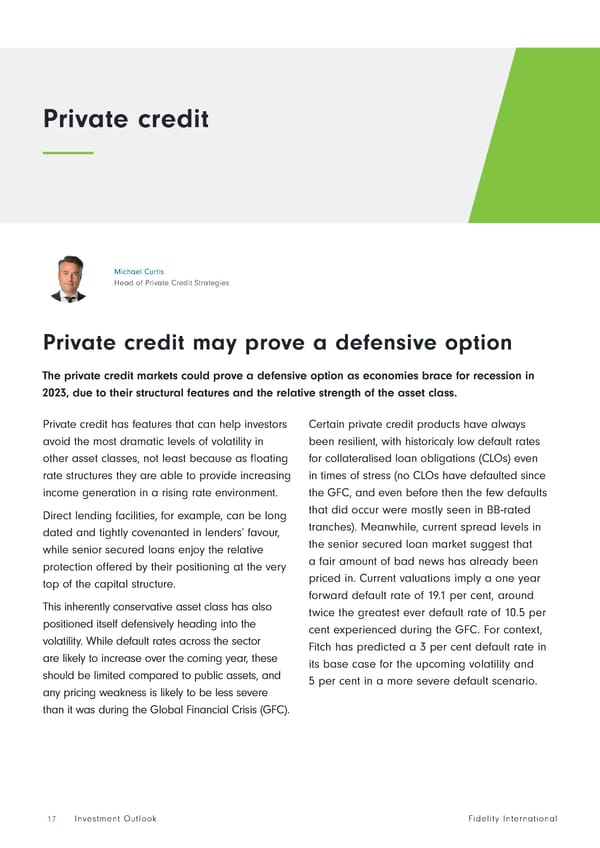Private credit Michael Curtis Head of Private Credit Strategies Private credit may prove a defensive option The private credit markets could prove a defensive option as economies brace for recession in 2023, due to their structural features and the relative strength of the asset class. Private credit has features that can help investors Certain private credit products have always avoid the most dramatic levels of volatility in been resilient, with historicaly low default rates other asset classes, not least because as floating for collateralised loan obligations (CLOs) even rate structures they are able to provide increasing in times of stress (no CLOs have defaulted since income generation in a rising rate environment. the GFC, and even before then the few defaults Direct lending facilities, for example, can be long that did occur were mostly seen in BB-rated dated and tightly covenanted in lenders’ favour, tranches). Meanwhile, current spread levels in while senior secured loans enjoy the relative the senior secured loan market suggest that protection offered by their positioning at the very a fair amount of bad news has already been top of the capital structure. priced in. Current valuations imply a one year forward default rate of 19.1 per cent, around This inherently conservative asset class has also twice the greatest ever default rate of 10.5 per positioned itself defensively heading into the cent experienced during the GFC. For context, volatility. While default rates across the sector Fitch has predicted a 3 per cent default rate in are likely to increase over the coming year, these its base case for the upcoming volatility and should be limited compared to public assets, and 5 per cent in a more severe default scenario. any pricing weakness is likely to be less severe than it was during the Global Financial Crisis (GFC). 17 Investment Outlook Fidelity International
 Fidelity International Outlook 2023 Page 16 Page 18
Fidelity International Outlook 2023 Page 16 Page 18